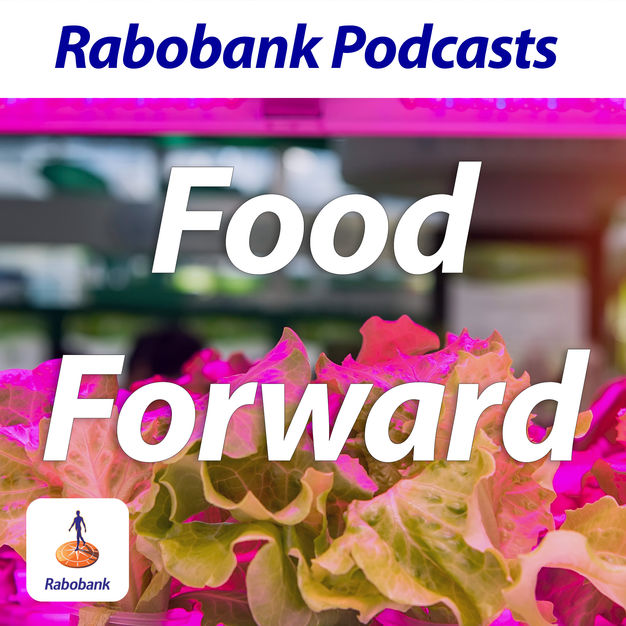
Food Forward
Rabobank
What will be on our plates in 2050, and how will it get there? Food Forward is a new Rabobank podcast featuring the innovators and agriculture experts who are changing the way we produce and consume food.
- 20 minutes 46 secondsFood Forward: “Don’t hide from consumers”
“We’ve been hurt, we’ve been disappointed, we’ve felt somewhat misled.” Feelings of distrust have damaged the relationship between consumers and food companies. According to Linda Eatherton, it’s time to “pull back the curtain.”
Linda Eatherton is the Managing Director of global marketing communication and consultancy firm Ketchum. She thinks a lot about how companies can earn trust – and permission – from their customers.
A “social license to operate” has become increasingly important for running a business in the 21st century. But this isn’t a license that can be bought or reached with good PR alone, Eatherton explains. “It’s a concept that’s old and yet new again. In many cases, it’s a very simple idea: the trust between parties and partners to do business and to trade.”
Across the food and agricultural sectors, that trust has eroded, leaving the general public suspicious about where their food comes from. So what can companies do to earn a social license? Transparency is key, says Eatherton, even when there is still work to be done. Admitting you’ve made a mistake or that you are still improving earns businesses more credibility than keeping the doors shut.
In this episode of Food Forward Eatherton explains what’s at the root of consumer distrust and how food and agriculture companies can rebuild their reputations and strengthen their relationships with their customers.
13 October 2019, 3:45 pm - 30 minutes 17 secondsFood Forward: The network of start-ups fueling the food chain
The start-ups who pitch at FoodBytes! are driving some of the key developments in food and agriculture today. Nina Meijers, Start-up Relationship Manager at Rabobank, explains how supporting these companies fuels innovation across the food chain.
FoodBytes! is best known as a pitch competition. But according to Meijers, that’s really only the beginning of the story. “The real lasting value for all participants – start-ups, corporate clients, and investors – is this continuous community and network.”
Since launching in San Francisco in 2015, FoodBytes! has received over 2,000 applications and boasts a community of 265 alumni – and counting. And then there’s the network of large corporates and investors who have come on board to mentor and collaborate with start-ups.
“Over the last four years large corporates lost 18 billion dollars in market share to emerging companies who are able to more nimbly adapt to changing consumer demands,” Meijers explains. “Corporates are increasingly looking for ways to engage in a meaningful way – ways to collaborate with these leading edge innovators to help them evolve their businesses. That’s the nexus where FoodBytes! sits.”
**
Upcoming FoodBytes! events:
Chicago | September 19, 2019 London | November 7, 2019
Visit: www.foodbytesworld.com
28 August 2019, 8:15 am - 25 minutes 44 secondsFood Forward: Self-reliance for 4 million smallholders
45 years. 22 countries. 350 cooperatives. 4 million farmers. These are easy numbers to share, admits Pim Mol, Director of Rabo Foundation. But they don’t tell the whole story of how a corporate foundation is empowering farmers to become self-reliant. A resilient global food system starts with the smallholder farmers who grow a staggering percentage of the world’s food. “Rabo Foundation focuses on the economic, social, and ecological impact,” says Mol. “It’s easy to state the big numbers, but what is happening with the smallholder farmers?”
13 August 2019, 5:27 pm - 23 minutes 6 secondsFood Forward: Is animal protein here to stay?
Spoiler alert! Meat isn’t going anywhere. But that doesn’t mean the animal protein industry isn’t changing. What will the sector – and our diets – look like in twenty years? Animal protein strategist Justin Sherrard carves into our meatiest questions.
11 July 2019, 11:06 am - 30 minutes 10 secondsFood Forward: “It’s a fork to farm story”
“When the consumer makes its mind up about something, it can have profound implications, all the way back to the farmer.”
Who’s really driving the future of food? Product developers? The hottest new chef? Tech-savvy farmers? Or is it each of us, every time we decide what to eat next? Nick Fereday, Executive Director of Food and Consumer Trends at Rabobank, has the outlook on consumer trends. But can the industry keep up?
12 May 2019, 8:41 am - 25 minutes 57 secondsFood Forward: Drones, delivery and DNA
Farm robotics and online restaurants are already a reality. But there’s much more to come in food and agtech innovation. What ideas are making it off the drawing board and onto our plates? AgFunder’s Louisa Burwood-Taylor sheds some light.
1 May 2019, 2:49 pm - More Episodes? Get the App
Your feedback is valuable to us. Should you encounter any bugs, glitches, lack of functionality or other problems, please email us on [email protected] or join Moon.FM Telegram Group where you can talk directly to the dev team who are happy to answer any queries.
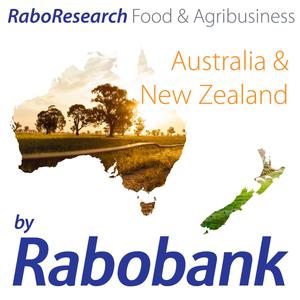 RaboResearch Food & Agribusiness Australia/NZ
RaboResearch Food & Agribusiness Australia/NZ
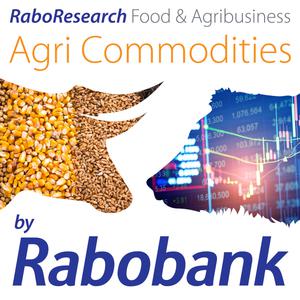 RaboResearch Agri Commodities
RaboResearch Agri Commodities
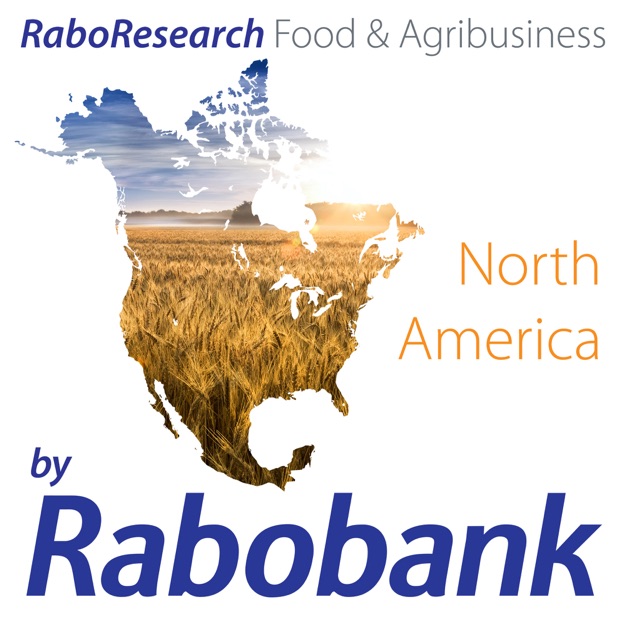 RaboResearch Food & Agribusiness North America
RaboResearch Food & Agribusiness North America
 RaboResearch Food & Agribusiness Brazil
RaboResearch Food & Agribusiness Brazil
 Liquid Assets: A Beverage Industry Podcast
Liquid Assets: A Beverage Industry Podcast
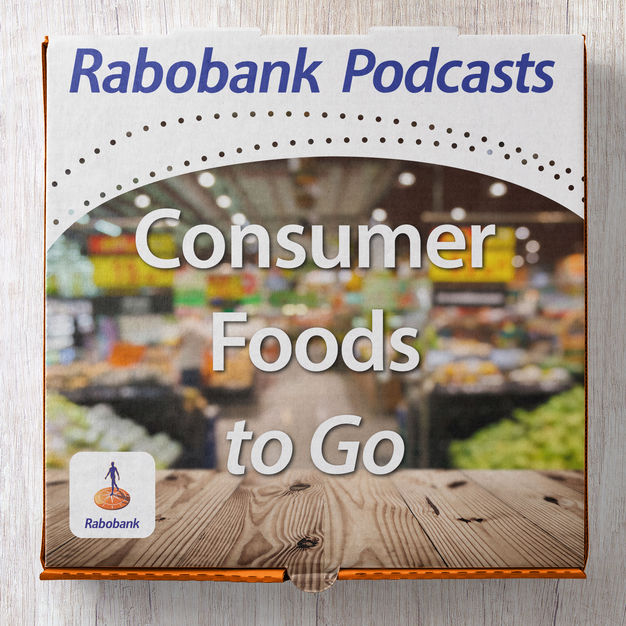 Consumer Foods to Go
Consumer Foods to Go